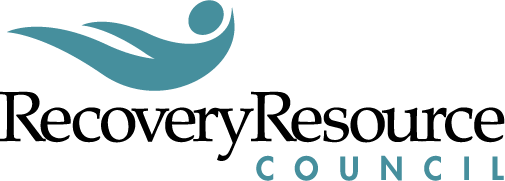
Transforming for Tomorrow Campaign
Our Vision
At Recovery Resource Council, we envision a future where everyone has access to the resources they need for wellness and recovery. Our Transforming for Tomorrow Campaign is an opportunity to create purpose-built facilities that will allow us to expand our reach, enhance our services, and meet the growing needs of North Texas communities. By joining us in this campaign, together, we’re building a lasting foundation for veterans, unhoused, youth, and families facing alcohol, substance use, trauma, and mental health challenges.
The Growing Needs of North Texas
As North Texas continues to grow, so too does the urgent need to expand behavioral health and social services, with rising demands outpacing available resources.
- Regional Growth: The Dallas-Fort Worth-Arlington metro saw the largest population increase in the country in 2023, now exceeding 8 million people.
- Opioid Crisis: Opioid-related deaths, particularly from fentanyl, surged from 11% to 80% between 2018 and 2023 in North Texas.
- Veteran Mental Health: Over half of veterans reported clinical counseling as a top unmet need in the 2020 Texas Veterans Needs Assessment.
- Youth Mental Health: One in three children in Texas children experience a mental health disorder annually, with nearly one in five youth under 18 facing emotional or behavioral problems.

Campus Expansion & Renovation Plans
Project #1: West Campus Rebuild
In 2024, Recovery Resource Council sold the two buildings that comprise its West Campus, as they were located within TxDOT’s planned expansion of Airport Freeway. With the sale of our existing West Campus, the need to build a new home for our programs and services in Fort Worth is paramount. Our West Campus serves as the headquarters for the Council and is an anchor point for all the programs we provide across North Texas. This sale has accelerated the timeline of our campaign, with groundbreaking for the new facility expected in February 2025 and move-in projected for late fall 2025. The new 9,500-square-foot facility will enhance service quality and operational efficiency by consolidating services into one energy-efficient, secure space with flexible offices, improved parking, and a reduced footprint, all while maintaining our service capacity.
Project #2: East Campus Renovations
In 2023, Recovery Resource Council acquired a permanent East Campus location in downtown Dallas, improving accessibility and proximity to other services. This 3,978-square-foot building requires renovations to better meet the needs of a diverse client base. Planned upgrades include adding three offices to expand counseling capacity, enhancing safety and functionality for clients and staff, addressing essential plumbing repairs, and creating flexible workspaces. These renovations aim to foster a supportive environment for healing and recovery, reinforcing the Council’s commitment to accessibility and inclusivity. Construction is set to start in late 2025, with completion expected by February 2026.
West Campus Rebuild
East Campus Renovations
Why Your Support Matters
Transforming for Tomorrow is not just about building physical spaces; it’s about creating environments that enhance our ability to provide essential care to vulnerable populations, including veterans, at-risk youth, individuals with co-occurring disorders, and those experiencing homelessness. Your support is essential in helping us reach our goal of raising $1.35 million toward a $5.1 million initiative that will directly address the growing needs of North Texans facing alcohol, substance use, trauma, and mental health challenges. Together, we can build the foundation for a future where wellness and recovery are not just possible, but accessible for all.
Benefits & Impact:
Expanded Capacity: The Council will significantly increase its capacity to serve North Texans, building on the 65,000 individuals currently reached annually.
Improved Safety and Accessibility: Both facilities will feature state-of-the-art security measures to ensure the safety of clients, staff, and visitors. Critical infrastructure upgrades, including sewer line improvements and ADA-accessible features, will enhance access to mental health services for persons with disabilities and support long-term growth.
Reduced Footprint and Operating Costs: Modern, efficient campuses will lower annual maintenance, utility, and repair costs. These savings will be reallocated to extend services to even more individuals in need.
Testimonials
“
”
Learn More About Our Mission
Request More Information
For more details or to get involved, please contact our Chief Development Officer, Noelia V. Saenz, PhD.
817-332-6329 x3630
[email protected]
